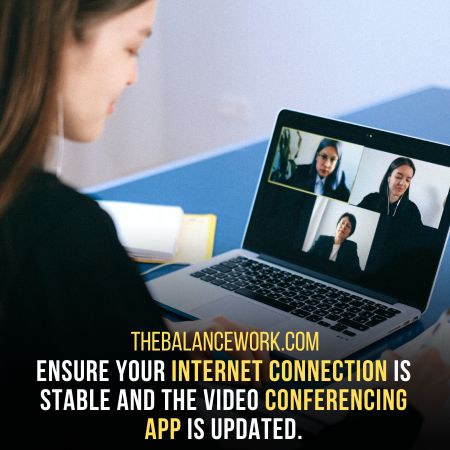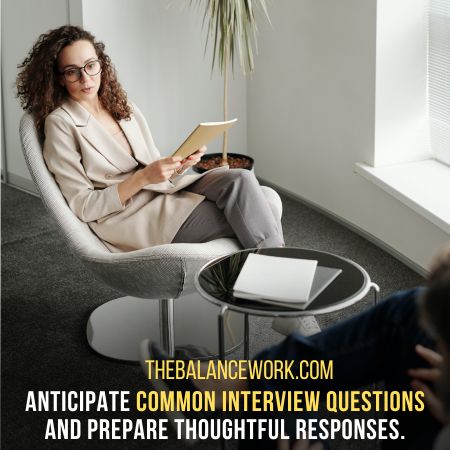In today’s globalized world, remote interviews have become the new norm.
With this shift, the ability to navigate common interview questions effectively has never been more crucial.
This guide will explore various types of interview questions.
It provides actionable tips to help you craft compelling responses.
And equips you with the confidence to excel in your next remote interview.
7 Common Questions in Remote Interviews
Let’s delve into five frequently asked remote interviews questions.
We’ll break each one down, look at why employers ask them and provide strategies to answer effectively.
Whether you are a fresh graduate or an experienced professional, this guide will equip you with key insights to impress your interviewer. Here’s how to ace a remote job interview.
“Tell me about yourself.”
This question is often used to evaluate how well you articulate your career history and achievements.
To answer effectively, craft a concise narrative highlighting your key skills and experiences relevant to the job.
For instance,
“I am a project manager with over 5 years of experience. My expertise lies in managing cross-functional teams and delivering projects on time and within budget.”
“What interested you about this position?”
The interviewer wants to gauge your motivation and understanding of the role.
Discuss specific aspects of the job description that align with your career aspirations.
For example,
“I was drawn to this role due to its emphasis on data-driven decision making, an area I thrived in throughout my previous positions.”
“How do you handle challenges?”
This question assesses your problem-solving skills.
Provide a concrete example of a challenge you faced, the actions you took to overcome it, and the outcome.
For example,
“At my previous job, we faced a major deadline. I re-prioritized my team’s tasks and worked overtime, enabling us to deliver the project successfully.”
“How do you maintain productivity when working remotely?”
This question is specific to remote work scenarios.
Discuss your strategies for staying focused and productive, such as a dedicated workspace, a structured schedule, or leveraging project management tools.
You might say,
“I maintain a regular schedule and use tools like Asana to stay organized and manage my tasks.”
“Why should we hire you?”
Here, the interviewer is asking you to make your case.
Tailor your response to the job requirements, highlighting your unique skills and how you can add value.
For instance,
“My experience in sales and my customer service skills make me a strong candidate. I am confident that I can help increase your customer retention rates.”

“Why do you want to work from home?”
This question helps the interviewer understand your motivations for seeking a remote role.
You might discuss the great benefits you’ve found from remote work, such as increased productivity, fewer distractions, or better work-life balance.
For example,
“I find that working from home allows me to concentrate better and be more productive. It also provides me with a better work-life balance.”
“Have you worked remotely before?”
With this question, interviewers are trying to assess your ability to be productive and self-motivated in a remote setting.
Discuss any previous remote work experience and how you successfully navigated the challenges.
For instance,
“Yes, I have worked remotely before. I found maintaining a routine and having a dedicated workspace essential for staying focused and productive.”
10 Game-Changing Tips for Remote Interviews
Navigating through an interview can be daunting, but with the right preparation, you can confidently answer any question thrown your way.
This article provides insights into various types of interview questions and delivers effective strategies for formulating your responses, hence enhancing your chances of success. These are all remote interviewing tips.
Prepare Your Tech
Ensure your internet connection is reliable and your video conferencing app is updated.
Test your audio and video quality before the interview.
This preparation prevents technical glitches and helps you make a smooth first impression.
Review the Job Description
Thoroughly understanding the job role and requirements can help you tailor your responses effectively.
Matching your skills and experience with the job requirements can boost your credibility during the interview.

Research the Company
Gaining knowledge about the company’s culture, mission, and recent developments can help you answer questions more confidently and show your genuine interest in the company. This is one of the best remote interviewing tips.
Plan Your Responses
Anticipate common interview questions and prepare thoughtful responses.
Using the STAR (Situation, Task, Action, Result) method to frame your answers can make your stories more compelling.
Create a Professional Environment
Choose a quiet, well-lit space for the interview.
Ensure the background is neat and professional-looking, free from distractions.
Dress Professionally
Even though it’s a remote interview, it’s vital to dress as if you were attending in person.
This not only makes a good impression but can also boost your confidence.
Monitor Your Body Language
Maintain eye contact by looking at the camera and not the screen.
Good posture and a smile can convey confidence and enthusiasm, even digitally.
Ask Insightful Questions
Interviewers appreciate it when candidates ask thoughtful questions.
This shows your interest in the role and can provide invaluable insights into the company.
Follow-Up After the Interview
Send a thank-you email after the interview expressing your appreciation for the opportunity.
This reaffirms your interest and leaves a positive impression.
Stay Positive and Confident
It’s normal to feel nervous, but remember to remain positive and confident.
Your attitude can have a significant impact on how the interviewer perceives you.

Signs a Zoom Interview Went Well
Positive signs after a Zoom interview may include the interviewer showing genuine interest in your answers, the conversation flowing naturally, and the interviewer sharing details about the next steps in the hiring process.
They might spend extra time discussing the role and the company or introduce you to other team members.
Remember, a positive outcome often depends on your preparation and how effectively you communicate your skills and experience.
What to Wear to a Zoom Job Interview?
Dressing professionally for a Zoom interview is crucial.
Opt for business attire, such as a suit or a neat blouse and skirt.
Avoid bright colors and patterns that might be distracting.
Remember, the way you present yourself can influence the interviewer’s perception.
Conclusion
In conclusion, preparing for an interview involves both understanding the types of questions likely to be asked and developing thoughtful, well-articulated responses.
By anticipating interviewer expectations and delivering clear, confident answers, you can showcase your skills, experience, and suitability for the role.
Remember, success in an interview is not just about answering questions correctly; it’s about demonstrating your unique value and fit for the position.
Last Updated on 1 month by Usama Ali
- 7 Great Signs Your Boss Wants to Help You - October 8, 2023
- How To Explain Dropping Out Of Law School? Detailed Guide - September 6, 2023
- 10 Reasons Employees Get Fired in Workplace - August 27, 2023
